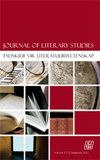《艾略特和贝克特的低级现代主义:谦逊与羞辱》,里克·德维利尔著
IF 0.1
4区 文学
0 LITERARY THEORY & CRITICISM
引用次数: 0
摘要
里克·德·维利尔在艾略特和贝克特的《低级现代主义:谦卑与羞辱》中的主要论点是,这两位作家的作品都表现出对痛苦的关注及其可能的影响之一,即“人格的灭绝”(2)。因此,他以讨论羞辱与谦卑的矛盾关系开始了他的论点。在世俗的、后启蒙时代的外衣下,谦逊与个人自主、维护人类尊严、进步、完美和社会改善等人文主义和理性主义观念联系在一起。因此,尽管在启蒙运动的解放叙事背景下,谦卑是以承认个人的缺点和普遍的局限性为前提的,但它“以同等的力量维护每个人固有的尊严”(11)。从这个角度来看,谦卑不能不回避羞辱,这是与剥夺人的尊严和侵蚀进步和提高人类的观念相一致的。然而,德维利耶所表明的是,谦逊和羞辱曾经是紧密相连的,后者指的是个人的自卑行为,而不是贬低他人的人际行为。此外,在这个基督教传统中,谦卑的必然结果是自知,这被理解为不仅是对自己弱点的认识,而且是对人类错误的认识。事实上,正是后者激发了消极的自我关注,从而导致了自我遗忘和自我贬低。在这方面,De Villiers引用了Simone Weil的反思,“一旦我们理解了我们什么都不是,我们所有努力的目标就是成为什么都不是”(15)。当谦卑和屈辱相结合时,知识就转化为自我牺牲。本文章由计算机程序翻译,如有差异,请以英文原文为准。
Eliot and Beckett’s Low Modernism: Humility and Humiliation, by Rick de Villiers
Rick de Villiers’s principal contention in Eliot and Beckett’s Low Modernism: Humility and Humiliation is that the work of both these writers evinces a concern with suffering and one of its possible effects, that is, “the extinction of personality” (2). For this reason, he begins his argument with a discussion of the ambivalent relation of humiliation to humility. In its secular, post-Enlightenment guise, humility is associated with humanist and rationalist notions of individual autonomy, the preservation of human dignity, progress, perfectability, and the betterment of society. So, although humility, in the context of the Enlightenment project’s emancipatory narrative, is premised on a recognition of the individual’s shortcomings and of universal limitations, it asserts “with equal force the inherent dignity of each individual” (11). From this perspective, humility cannot but eschew humiliation, which is aligned with a divestiture of human dignity and an erosion of notions of progress and human upliftment. What De Villiers shows, however, is that humility and humiliation were once closely affined, with the latter designating the personal act of self-abasement rather than the interpersonal act of degrading another person. Moreover, a corollary of humility, in this Christian tradition, is self-knowledge, which is understood to mean not only knowledge of one’s own weaknesses, but also of human fallibility. Indeed, it is the latter which inspires a negative self-regard and, with it, self-forgetfulness and self-lowering. In this connection, De Villiers cites Simone Weil’s reflection that “Once we have understood that we are nothing, the object of all of our efforts is to become nothing” (15). When humility and humiliation are aligned, knowledge translates into self-sacrifice.
求助全文
通过发布文献求助,成功后即可免费获取论文全文。
去求助
来源期刊

Journal of Literary Studies
Multiple-
CiteScore
0.50
自引率
0.00%
发文量
0
期刊介绍:
The Journal of Literary Studies publishes and globally disseminates original and cutting-edge research informed by Literary and Cultural Theory. The Journal is an independent quarterly publication owned and published by the South African Literary Society in partnership with Unisa Press and Taylor & Francis. It is housed and produced in the division Theory of Literature at the University of South Africa and is accredited and subsidised by the South African Department of Higher Education and Training. The aim of the journal is to publish articles and full-length review essays informed by Literary Theory in the General Literary Theory subject area and mostly covering Formalism, New Criticism, Semiotics, Structuralism, Marxism, Poststructuralism, Psychoanalysis, Gender studies, New Historicism, Ecocriticism, Animal Studies, Reception Theory, Comparative Literature, Narrative Theory, Drama Theory, Poetry Theory, and Biography and Autobiography.
 求助内容:
求助内容: 应助结果提醒方式:
应助结果提醒方式:


